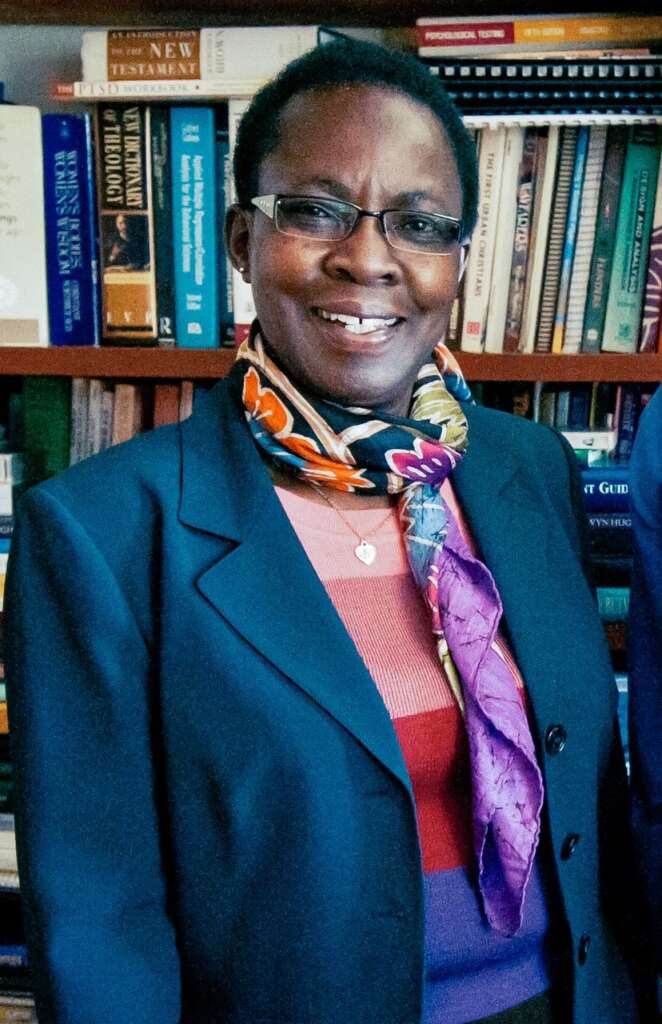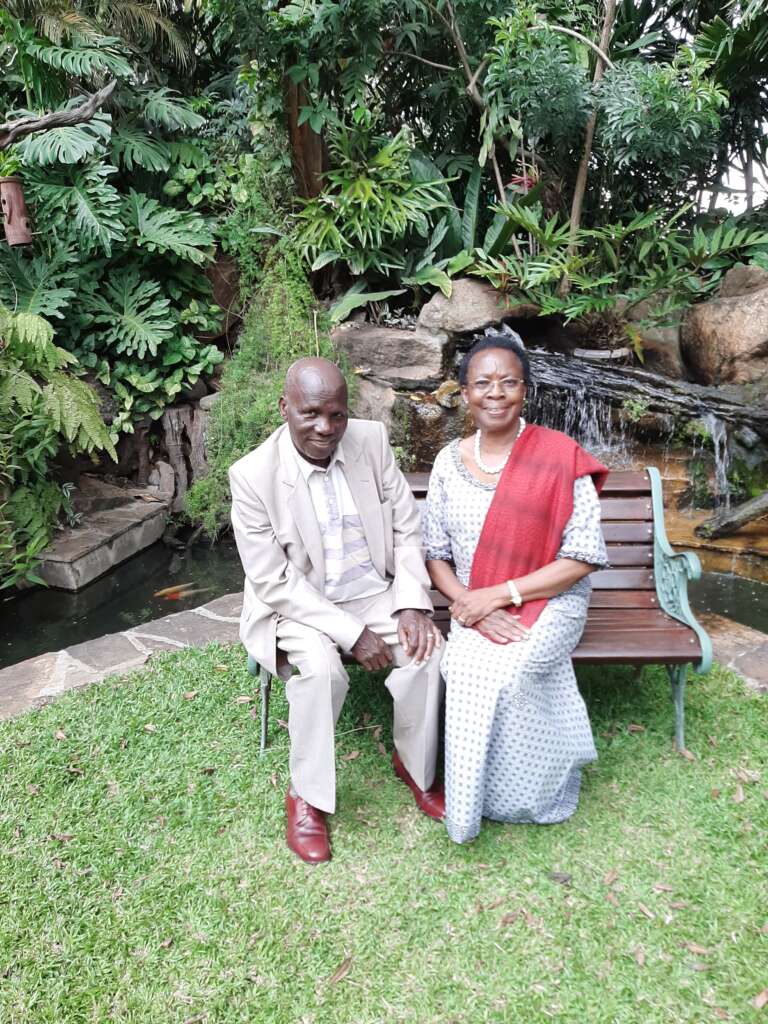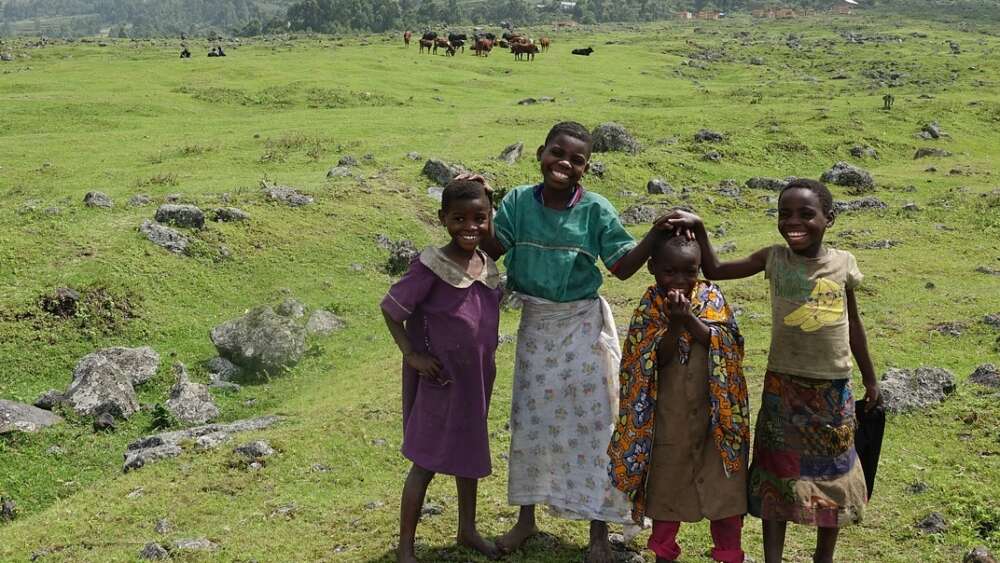Gladys Mwiti was raised in a village on the slopes of Mount Kenya by an extraordinary mother who trained her eight children to work hard and pray hard.
As Gladys told an international meeting in Sydney recently, it was only when she gained her PhD in clinical psychology from Fuller Seminary in the US that she realised what a wonderful psychologist her mother was, despite being illiterate, because she understood motivation, reinforcement, and organisation.
“My mother was the major motivator of my life. She was a prayer warrior. She loved the Lord and prayed all the time, but then she was also a very disciplined woman. She taught us from very early to work very hard with our hands and to work in school,” she tells Eternity in a break between meetings of the Langham Partnership Council in Sydney in May.
“Every evening before we went to sleep, she would outline the chores for the following morning, whether it was a school day or school holidays. You have to wake up at five, and we pray together. We lived in this square house divided into four rooms. The walls were made of mud splattered with cow dung and ash that we did ourselves with grass on top.”

Gladys Mwiti
So each morning, after waking at 5 am and praying, the children would begin their allocated chores, working in the garden, fetching water or feeding the pigs.
“You finish all that; you come home. You shower, you have your breakfast, and you walk four miles to school, and you’ve got to be in school before 7:30 AM,” Gladys recalls.
“Our family was the bell ringers because the teachers knew our family never, ever was late for school.”
A Christian from the age of seven, Gladys is now an internationally respected and loved author, speaker, psychologist, and CEO of Oasis Africa Centre for Transformational Psychology and Trauma, a pan-African professional organisation shaping the field of psychology based in Nairobi, Kenya.
Since its foundation in 1990, Oasis has provided trauma-focused therapy and supervision, including pro bono services for ministers and clergy. Gladys is also heavily involved in advocacy work with government offices, community organisations, and churches. As well, she sits on the Langham Partnership International Council, set up by English theologian John Stott, which has a vision with three areas of focus in the church’s global south – theological education in seminaries, theological literature and preaching.
In her interview with Eternity, it becomes clear that Gladys is a powerhouse of grace and wisdom. Though grieving the recent murder of her husband of 50 years, Gershon, by their long-time gardener, she is courageously carrying on their joint work in the Methodist Church and through Oasis Africa.
Answering the question on how she has coped since her husband’s death, Gladys responded: “What has kept me sane and going on is that I know Jesus was there that morning. I know he allowed him to go and the angel straightaway carried him into heaven. I know his work was done, beautifully done. He left me more than equipped to carry on alone. Still, I miss him. There’s an empty space in my life. But I know one day I’ll see him.”
The author of five books, Gladys’ recent work Parenting with Purpose and African Wisdom has been acclaimed globally for its scriptural wisdom and keen observations of what has worked in her own life and those of others.
“I was particularly struck by the author’s insight on the need for fathers to mentor their sons to become men – the missing Gaaru.” – Larry Stone
Among the many people who have endorsed the book as of benefit to Western parents as well as Africans is prominent US publisher Larry Stone, former Vice-President of Thomas Nelson Publishers and President of Rutledge Hill Press.
“I was particularly struck by the author’s insight on the need for fathers to mentor their sons to become men – the missing Gaaru. That’s a message that needs to be heard in the West as well as in Africa,” Stone wrote.

Gladys and Gershon Mwiti
Gladys explains: “In my tribe of the Meru of Kenya, we mentored children as they grew up in two ‘houses.’ We had the house of the men called Gaaru – not a physical house, but that was the presence of men in the boys’ life. And then we had the Kiuru, the board of women.”
These boards or houses would take boys and girls through the various psychological stages of life as the child matured, increasing their learning as they graduate through every stage.
“The men ensured that all the boys were taken through six stages that included social, cultural, maturation, and value-based training. And so, when they became men, they were no longer boys,” she explains.
“The girls would be taken through their stages as they grew from girls to women, and they would have to graduate from each stage.”
The problem is that the Gaaru board of men no longer functions very well, resulting in “today we sometimes have men who are still boys at 40.”
In her book, Gladys explains that as Western education and the church came into the life of her tribe, parenting as steps of training and education in Christian maturation fell away.
“So what has happened is that the Gaaru board of men has fallen out while the board of women has been sustained. Somehow women continue educating their girls. Where I come from, this is the way you sit; this is the way you talk to your father. This is the way you handle yourself as a woman. This is how you eat. This is how you dress; this is how you mature. So, to a large extent, the part for women has remained.
“Today we have in Africa, disoriented men because many haven’t changed from boys to men. On the other hand, you have women who know what it means to be a mother, how to multitask, how to work remotely and work hybrid and still be present at home – how to cook, how to clean. Many women have trained their girls how to be women. So we have a huge fallout of men who are not able to handle their male responsibilities and roles while women are carrying them.”
Gladys believes that the global church needs to take responsibility for the socialisation of boys to men. “The church should package it theologically and realise that it’s expected of parents to model and mentor and coach their children to grow into maturation, not only in Christ in their faith but also in their roles in society.”
For her part, Gladys has been sustained by the cross of Christ, to which she has turned since the age of seven when she attended a big Christian convention with her parents.
Her father, a barter trader, had come to Christ while fighting for the British Army in Burma during World War II. On his return, the East African Revival had spread from Rwanda into Uganda and Kenya. Gladys’ mother was one of the many who were saved.
“My mother made sure we go to church, so we go to this big preaching rally in the East African revival with 3000 people seated on the grass, listening to the Bible preaching for three days. You ate and slept there, in classrooms, on dry banana leaves, no beds, no mattress. But it was such a wonderful time, and that’s when I heard the gospel preached from John 3:16. When the altar call was made to come and receive the Lord as your Saviour, what stood out for me was that Jesus loved me so much that he died for me.
“…and I opened my little mouth, and I’ve never closed it!” – Gladys Mwiti
“As a seven-year-old, I didn’t see a lot of sin in my life, apart from licking the cream off the milk when my mother was not looking! I went to the Lord and received Christ because I realised he loved me so much and died for me, and I didn’t love him enough in return. So I went to the front among many other people and received Christ that day.”
Gladys vividly remembers a tall old man wearing a huge coat who came to her, bent down and embraced her, swallowing her in his coat.
“I remember the smell of that coat, that warmth. And he said, ‘Welcome to the fellowship.’ That made my day, and I’ve never forgotten it.
“I knew that although I was small, I was part of the fellowship. On the following Sunday at church, they lifted me and placed me on top of an old table that acted as the altar, and they said to everyone, ‘Gladys received Christ as her personal saviour last week. Gladys, tell us now your testimony.’ Oh, and I opened my little mouth, and I’ve never closed it! As a small child, I felt love and belonging and recognised by older people who validated my salvation.”
Gladys says it breaks her heart when parents don’t lead their children to Christ because they think a child doesn’t understand.
“I tell parents, ‘You’re not their saviour. Lead your children to Christ. Ensure that they are being trained on and discipled well. Then leave it to him to work out their salvation.’ So my mother validated my faith. The elders validated my faith, and I’ve never, ever looked back.”




